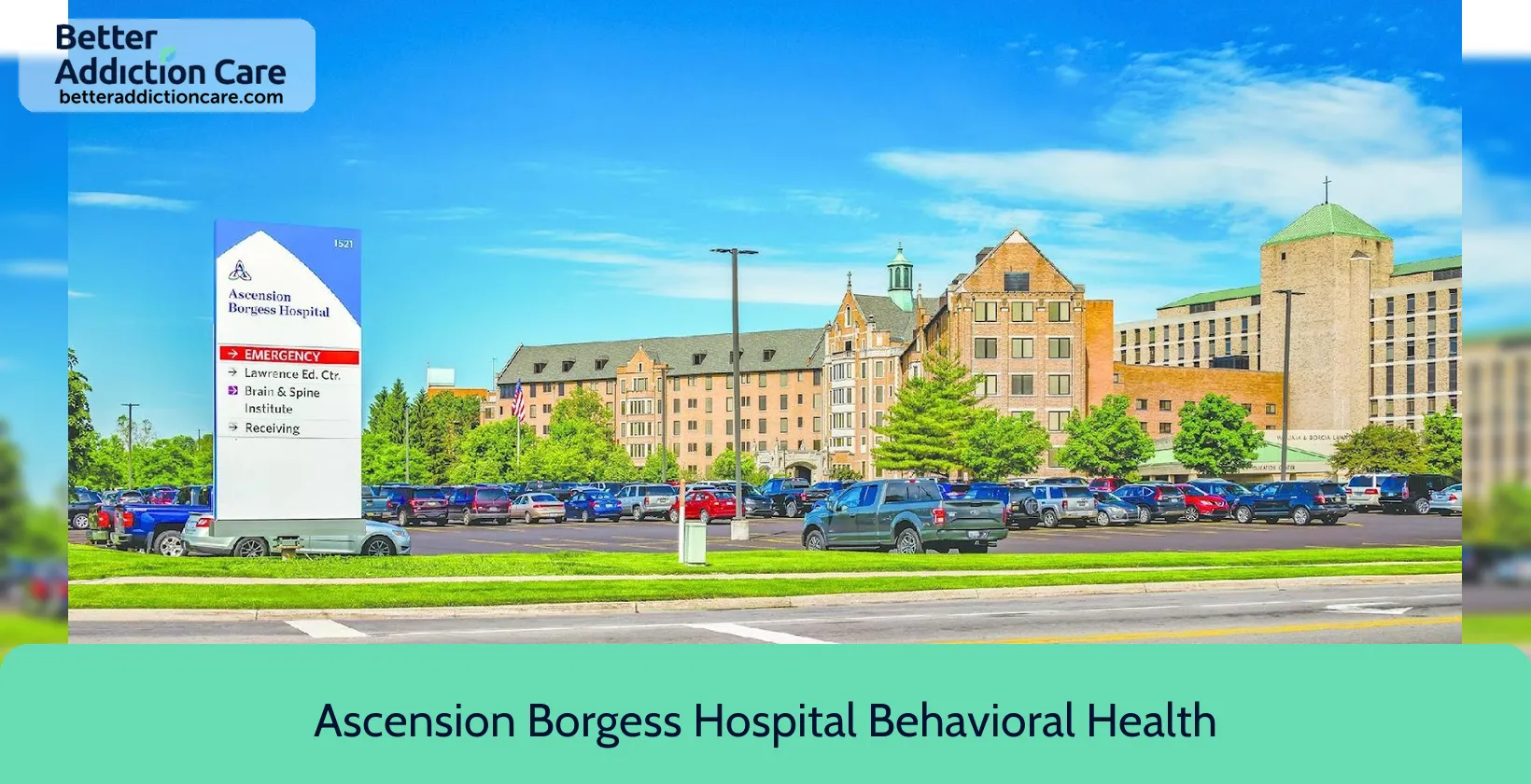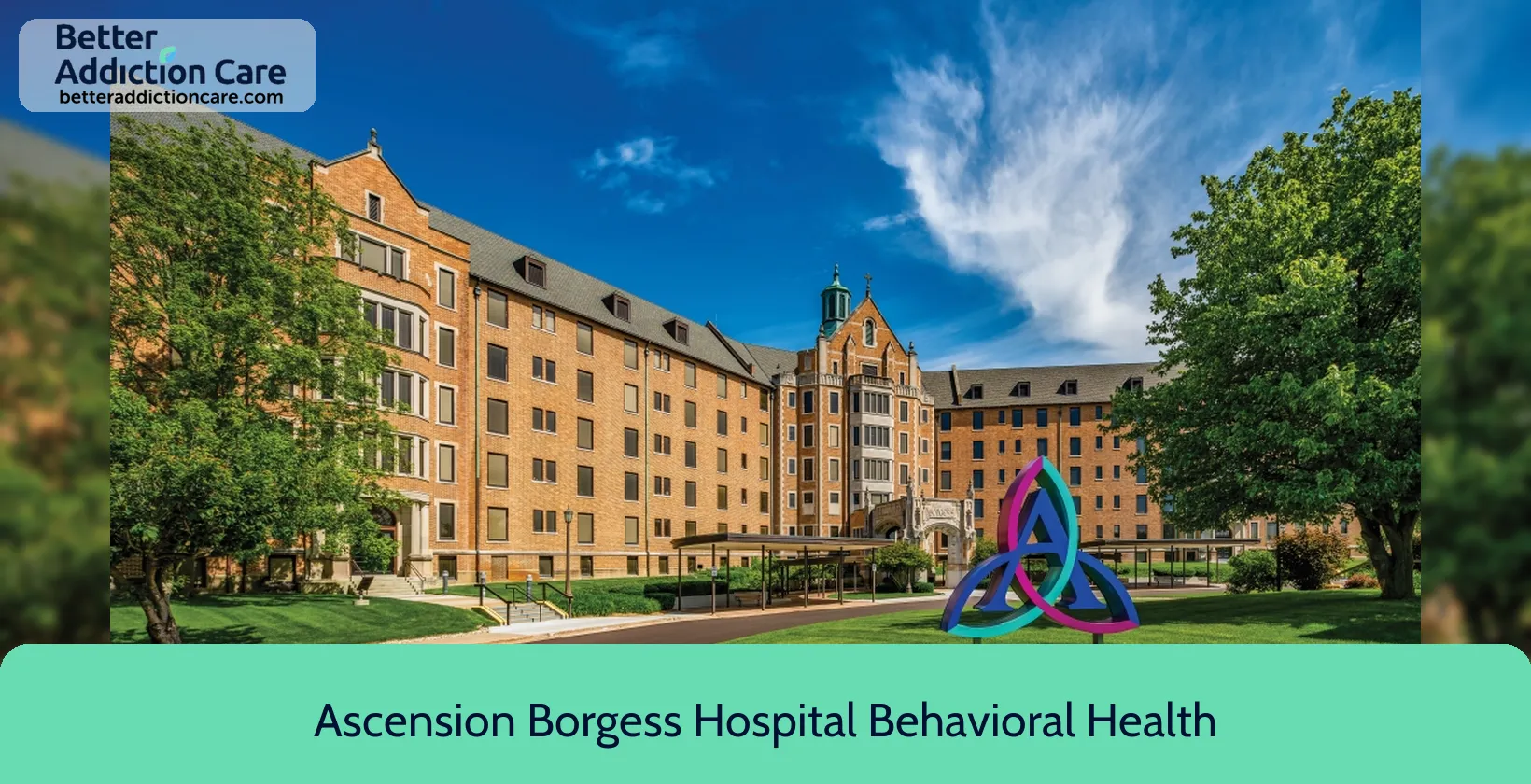Overview
Ascension Borgess Hospital Behavioral Health Inpatient Care is a mental health treatment center for people seeking treatment near Kalamazoo County. As part of their treatment modalities for recovery, Ascension Borgess Hospital Behavioral Health Inpatient Care provides couples/family therapy, group counseling, and cognitive behavioral therapy during treatment. Ascension Borgess Hospital Behavioral Health Inpatient Care is located in Kalamazoo, Michigan, accepting cash or self-payment for treatment.
Ascension Borgess Hospital Behavioral Health Inpatient Care at a Glance
Payment Options
- Cash or self-payment
- Medicaid
- Medicare
- State-financed health insurance plan other than Medicaid
- Private health insurance
Assessments
- Screening for tobacco use
- Comprehensive mental health assessment
- Comprehensive substance use assessment
Age Groups
- Seniors or older adults
- Children/adolescents
- Young adults
- Adults
- Seniors
Ancillary Services
- Case management service
- Education services
- Family psychoeducation
- Suicide prevention services
Highlights About Ascension Borgess Hospital Behavioral Health Inpatient Care
6.68/10
With an overall rating of 6.68/10, this facility has following balanced range of services. Alcohol Rehabilitation: 8.00/10, Drug Rehab and Detox: 6.00/10, Insurance and Payments: 6.00/10, Treatment Options: 6.73/10.-
Alcohol Rehabilitation 8.00
-
Treatment Options 6.73
-
Drug Rehab and Detox 6.00
-
Insurance and Payments 6.00
Treatment At Ascension Borgess Hospital Behavioral Health Inpatient Care
Treatment Conditions
- Mental health treatment
- Substance use treatment
- Co-occurring Disorders
Care Levels
- Hospital inpatient/24-hour hospital inpatient
- Partial Hospitalization Program
Treatment Modalities
- Couples/family therapy
- Group counseling
- Cognitive behavioral therapy
- Dialectical behavior therapy
- Activity therapy
Ancillary Services
Languages
- Sign language services for the deaf and hard of hearing
Special Programs
- Clients with co-occurring mental and substance use disorders
- Members of military families
- Clients who have experienced trauma
- Children/adolescents with serious emotional disturbance (SED)
- Persons 18 and older with serious mental illness (SMI)
Get Help Now
Common Questions About Ascension Borgess Hospital Behavioral Health Inpatient Care
Contact Information
Other Facilities in Kalamazoo

6.88

6.88

6.62

6.69
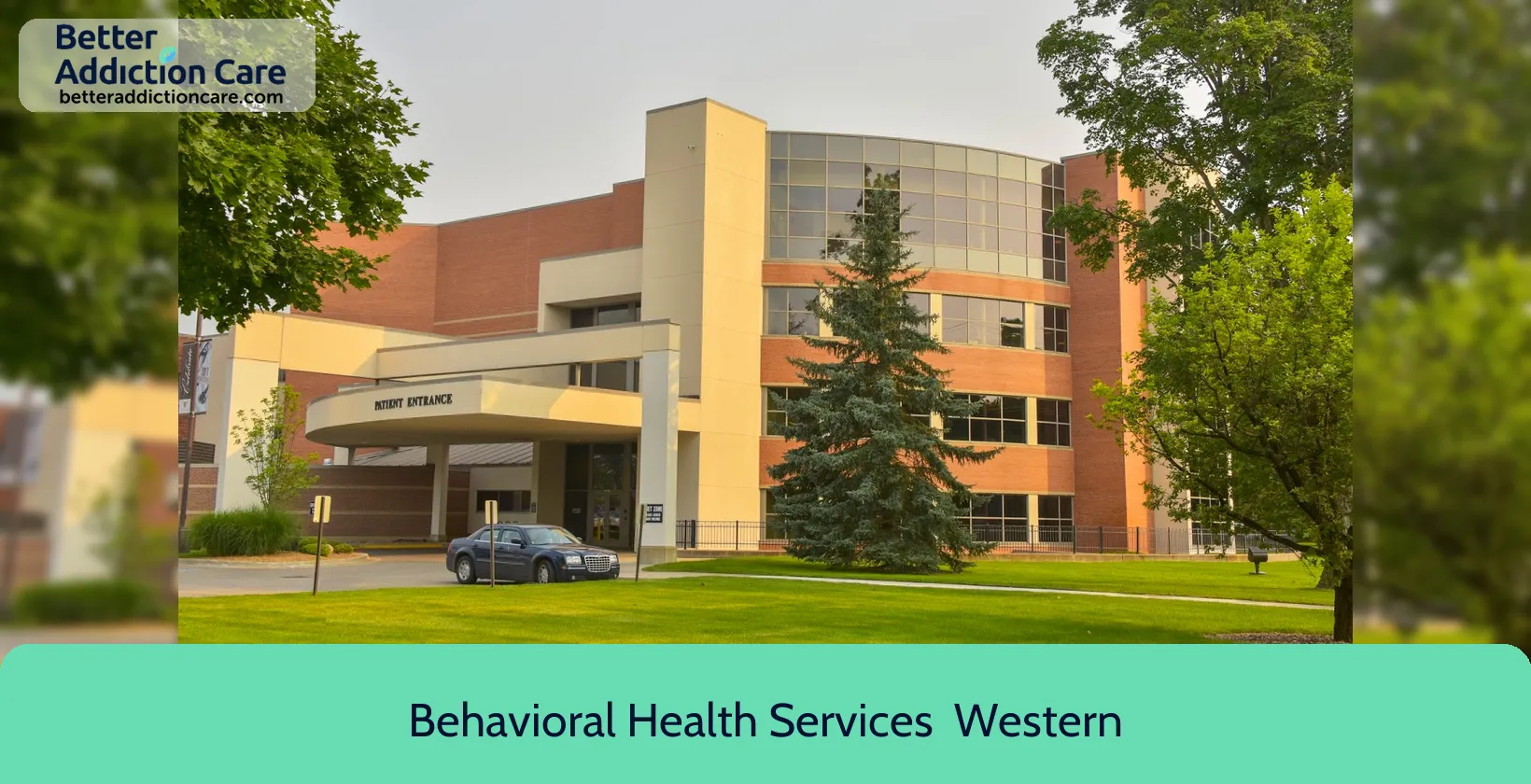
6.96
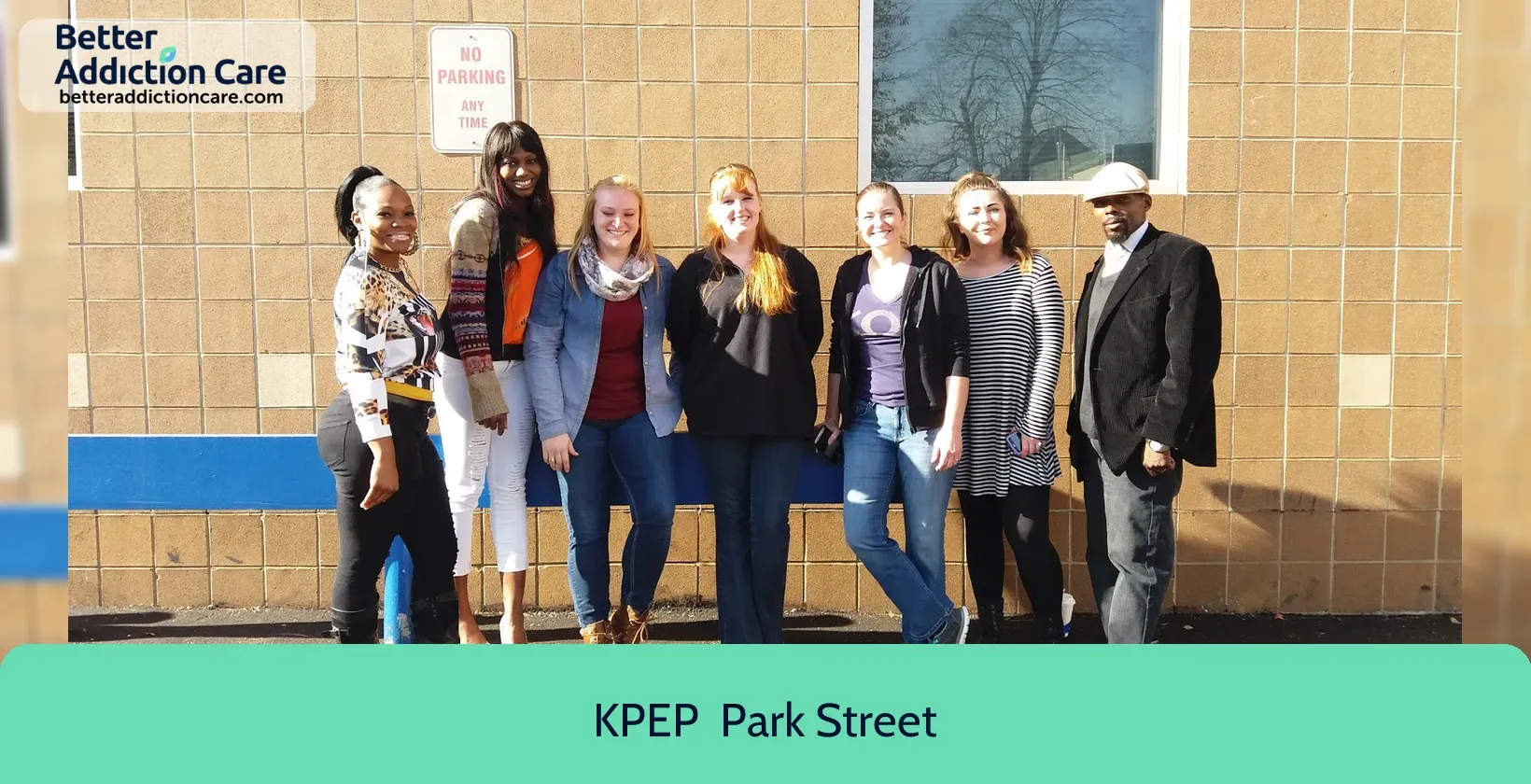
6.62
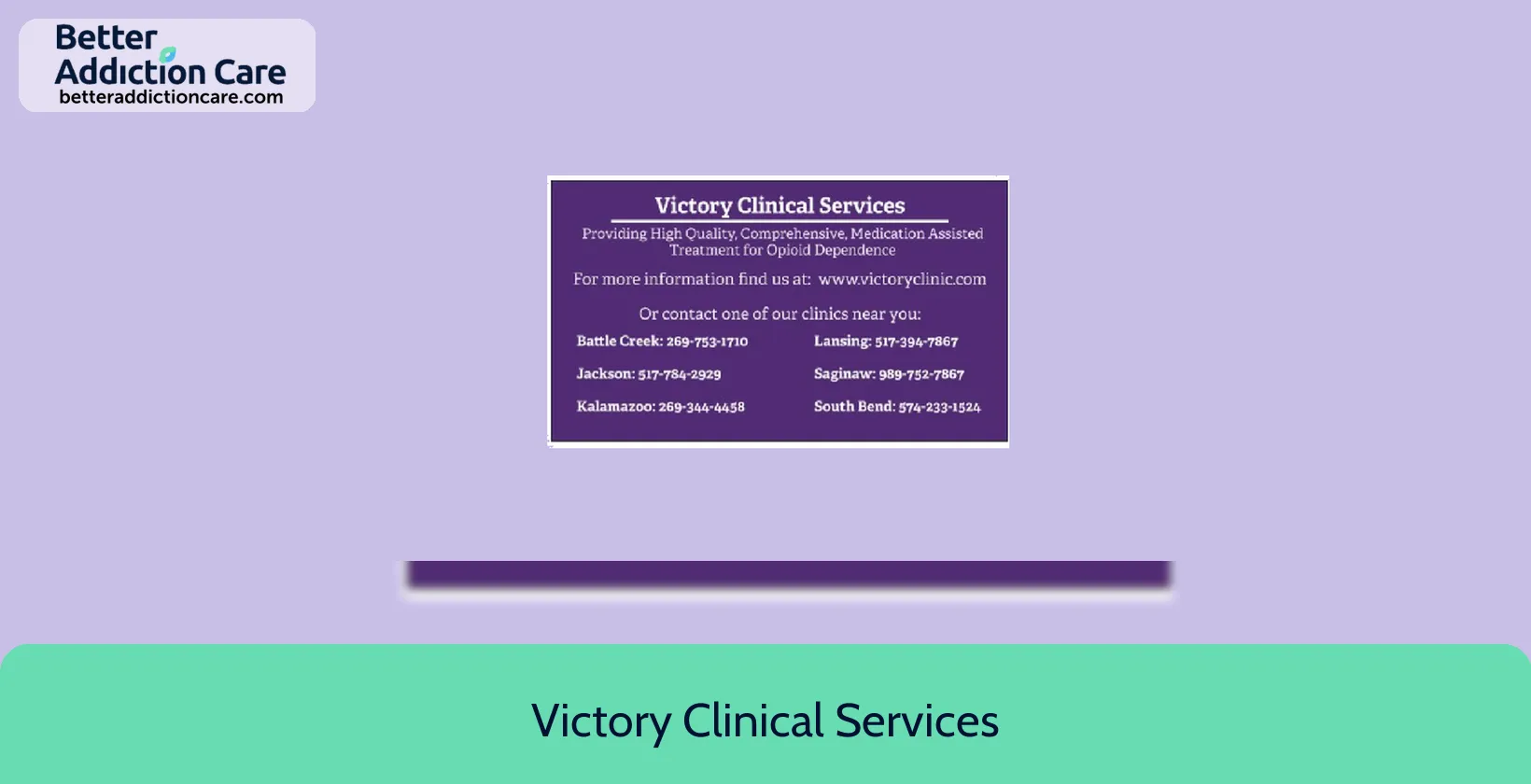
7.56
DISCLAIMER: The facility name, logo and brand are the property and registered trademarks of Victory Clinical Services, and are being used for identification and informational purposes only. Use of these names, logos and brands shall not imply endorsement. BetterAddictionCare.com is not affiliated with or sponsored by Victory Clinical Services.
